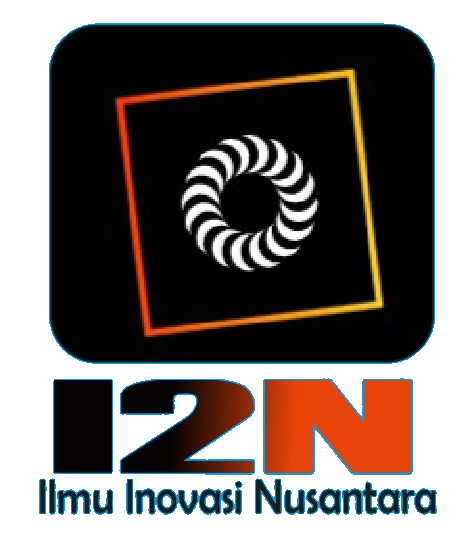Integrating Environmental Ethics into Christian Religious Education: An Analytical and Interpretive Approach through Project-Based Learning
DOI:
https://doi.org/10.58557/(ijeh).v5i4.367Kata Kunci:
Cognitive development, Early literacy, Interaction quality, Language richness, Parent-child co-readingAbstrak
This study explores the integration of environmental ethics into Christian Religious Education (CRE) using an analytical and interpretive approach. The core problem addressed in this research is the increasing neglect of ecological responsibility among communities, particularly within the context of religious learning, amid the challenges of globalization and industrialization. These dynamics often reduce the emphasis on moral, ethical, and environmental awareness, creating an urgent need to realign faith-based education with environmental stewardship. The main objective of this study is to uncover how CRE can serve as a foundational platform for shaping students' ethical and moral values that are environmentally conscious. By embedding ecological values in religious learning, the study aims to foster a more holistic formation of character that emphasizes the responsibility to care for creation. This research employs project-based learning as a methodological framework, wherein students engage in real-world learning activities that connect theological principles with environmental ethics. Through analytical and interpretive methods, the study examines how these educational experiences impact students’ perceptions, behaviors, and ethical reflections on nature and sustainability. The findings reveal that integrating environmental ethics within CRE significantly enhances students' awareness of ecological issues and their role as stewards of the environment. It also encourages community-level reflections and actions grounded in Christian teachings. The implication of this research is the potential for faith-based education, particularly in churches and Christian communities, to become a transformative force in promoting ecological responsibility. By aligning religious values with sustainable practices, CRE can contribute to broader efforts in cultivating environmental ethics across generations
Referensi
Adam Hamilton. (2025). Christianity and World Religions: Questions We Ask About Other Faiths.
Aldo Leopold. (1949). A Sand County Almanac.
Andar Ismail. (1999). Ajarlah Mereka Melakukan: Vol. Cetakan pertama (A. Ismail, Ed.; Cetakan pertama). BPK Gunung Mulia.
Apter, D., Baltimore, D., Bell, D., Calabresi, G., Davis, N. Z., Doniger, W., Geertz, C., Greenblatt, S. J., Gregorian, V., Hoffmann, S., Holton, G., Kennedy, D., Moore, S. F., Runciman, W. G., Sen, A. K., Weinberg, S., Bendell, P. S., Shoemaker, S. M., Edington, M. D. W., & Crema, A. P. (2001). BOARD OF EDITORS Managing Editor Associate Editor Circulation and Editorial Office Assistant.
Arne Naess. (1973). Deep Ecology.
Berry, T. (2006). The Sacred Universe: Earth, Spirituality, and Religion in the Twenty-First Century. Columbia University Press.
Bouma-Prediger, S. (2001). For the Beauty of the Earth: A Christian Vision for Creation Care. Baker Academic.
Bucher, S. (n.d.). The Role Of Environmental Ethics And Educational Approaches.
Dale Jamieson. (2008). Ethics and the Environment. Cambridge University Press.
Daniel L. Migliore. (2014). Faith Seeking Understanding: An Introduction to Christian Theology.
DeWitt, C. B. (1994). Earthwise: A Guide to Hopeful Creation Care. CRC Publications.
Edwards, D. (2006). Ecology at the Heart of Faith. Orbis Books.
Haluza-DeLay, R. (2008). Churches engaging the environment: An autoethnography of obstacles and opportunities. Human Ecology Review, 15(1), 71–81.
Hardani, & Nur Hikmatul Auliya. (2020). Metode Penelitian Kualitatif & Kuantitatif (A. Md. ,AK Husnu Abadi, Ed.; 1st ed.). Pustaka Ilmu.
Heru Setiawan. (2020). Pendidikan Agama Kristen dalam Konteks Multikultural dan Pluralistik.
Hina, J., Katu, R., Tinggi, S., & Satyabhakti, T. (2020). Teologi Ekologi: Suatu Isu Etika Menuju Eskatologi Kristen. https://www.bnpb.go.id/halau-jerebu-keprihatinan-para-
Ismail A. (1999). Awam dan Pendeta: Mitra membina Gereja, Jakarta: BPK. BPK Gunung Mulia.
Jenkins, W. (2008). Ecologies of Grace: Environmental Ethics and Christian Theology. Oxford University Press.
Jessy Yunus Dannari, Nur Sitti, Jimmi Mangosa, Hermita Ratte, & Fersiani Kanda Bassang. (2024). Pendidikan Agama Kristen dalam Perspektif Multikulturalisme di Sekolah. Anugerah : Jurnal Pendidikan Kristiani Dan Kateketik Katolik, 2(1), 01–10. https://doi.org/10.61132/anugerah.v2i1.427
M.Jen Ismail. (2021). Pendidikan Karakter Peduli Lingkungan. Pendidikan dan Pembelajaran, 4 (Pendidikan Karakter Peduli Lingkungan Dan Menjaga Kebersihan Di Sekolah), 59–68.
Maksum Rangkuti. (2024, March 24). Teknik-Teknik Pengumpulan Data dalam Penelitian: Panduan Lengkap untuk Peneliti. Info Dan Artikel, 1.
McFague, S. (2008). A New Climate for Theology: God, the World, and Global Warming. Fortress Press.
Palmer, P. J. (1999). The Grace of Great Things: Reclaiming the Sacred in Knowing, Teaching, and Learning. In The heart of learning (pp. 15–32). New Society Publishers.
Riana Lumbanraja. (2021). Manusia Berkarakter: Kajian Antropologi Batak dalam Buku Manusia Berkarakter (Riris Johanna Siagian, Ed.). L-SAPIKA Indonesia.
Sipos, Y., Battisti, B., & Grimm, K. (2008). Achieving transformative sustainability learning: Engaging head, hands and heart. International Journal of Sustainability in Higher Education, 9(1), 68–86.
Sterling, S. (2001). Sustainable Education: Re-visioning Learning and Change. Green Books.
Thomas, J. W. (2000). A Review of Research on Project-Based Learning. The Autodesk Foundation.
Utomo, B. S. (2020). Tafsir Kejadian 2:15 Sebagai Konstruksi Memahami Pelayanan dan Tanggung Jawab Orang Percaya terhadap Lingkungan. In BIA’: Jurnal Teologi dan Pendidikan Kristen Kontekstual (Vol. 3, Issue 2). Sekolah Tinggi Agama Kristen Negeri Toraja. https://doi.org/10.34307/b.v3i2.177
White, L. (1967). The Historical Roots of Our Ecologic Crisis. Science, 155(3767), 1203–1207.
Unduhan
Diterbitkan
Cara Mengutip
Terbitan
Bagian
Lisensi
Hak Cipta (c) 2025 Imelda Butarbutar, Riana Lumban raja, Sorta Sihombing, Sartika Maria Siregar, Tomi Jonatan Simbolon

Artikel ini berlisensiCreative Commons Attribution-ShareAlike 4.0 International License.














